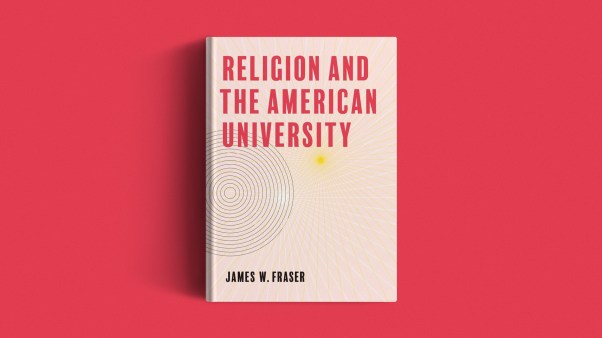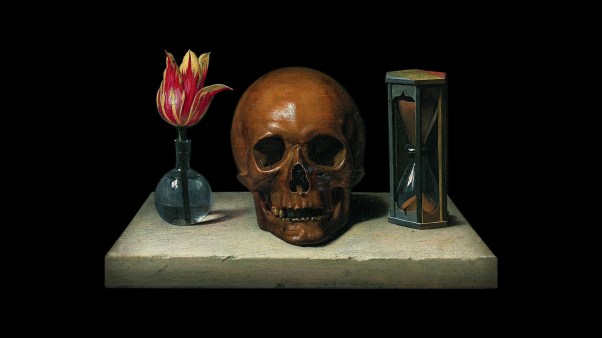Art or merely entertainment? Thought-provoking exploration or Christian propaganda? Scary or annoying?
Critics are severely divided over writer/director Scott Derrickson’s horror film The Exorcism of Emily Rose. A Christian with strong convictions about art, Derrickson says that he intended to make a scary movie that provokes audiences to leave the film discussing spiritual issues. He stresses that he did not want to preach, but to give viewers room to decide for themselves whether they think the devil exists. (Describing his movie, he’s as likely to mention Kurosawa’s Rashomon, with its multiple perspectives on a matter, as he is to bring up Friedkin’s The Exorcist.)
Audiences, ignoring the reviews as usual, rushed out to see this troubling story about a suffering young woman, her doctors, her family, and her priest. The film “possessed” the box office in its opening weekend, earning $30 million instead of the $10 million to $20 million that analysts predicted, trailing only Sweet Home Alabama and Rush Hour in the record books of September openings.
Mainstream critics across the country hurled all sorts of accusations at the film. In Slate, David Edelstein rants that “The movie’s overriding themes aren’t novel. Many biblical scholars (even those without Doubt) have argued that one reason Christianity took hold in the Western World was the church’s insistence that demons—and their overlord, Satan—exist. They needed demons to make God a necessity, not a luxury. Meanwhile, The Exorcism of Emily Rose takes us back about four centuries, to when mental illness was often interpreted as demonic possession.” He adds that the acting is “unusually bad—atrocious, even,” and the dialogue is “rattled off at a screwball-newspaper-comedy clip, the better to propel us into the courtroom and the hellish flashbacks.”
The Hollywood Reporter’s review reads, “The filmmakers argue that these courtroom scenes show a balanced argument, but the structure of the film sabotages them. It’s told from the point of view of the defense, so supernatural happenings are presented as concrete events. Derrickson’s characters are reduced to ciphers in a theological debate.”
A.O. Scott (New York Times) calls it “a fascinating cultural document in the age of intelligent design.” He concludes that the film is “propaganda disguised as entertainment.”
But Roger Ebert (Chicago Sun-Times) takes a more thoughtful approach: “Somehow the movie really never takes off into the riveting fascination we expect in the opening scenes. Maybe it cannot; maybe it is too faithful to the issues it raises to exploit them.”
Meanwhile, Christian film critics everywhere praised it as an admirable provocation to discussion.
Personally, I found the film truly troubling—in a good way. Derrickson made the proceedings seem very real—at least his depiction of possession. (The Law and Order-style courtroom scenes feel more contrived.) He wisely avoids embellishing the details of demon possession with gratuitous special effects or gross-out sensationalism, adding just enough of the familiar genre conventions for it to qualify as “a horror flick.” Poor Emily’s affliction is portrayed in a manner consistent with testimonies and documented cases, and it is a terrifying and perplexing sight, this mix of familiar symptoms (epileptic fits, multiple personalities) and seemingly supernatural transformations.
While the film is far from uplifting, it can be described as “redemptive” in that it exposes evil without becoming sensationalistic or gratuitous. Believers will be pleased to see that, in Derrickson’s story, while the damage done by possession is dismaying, it is ultimately God Almighty who has the last word.
Unfortunately, the film is not as even-handed as Derrickson wants it to be—there are several elements that incline viewers to look down on skeptics. The prosecutor, played by Campbell Scott, is portrayed as naïve, foolish, even mean-spirited, while the priest’s defendant, played by Laura Linney, seems thoughtful, open-minded, and sympathetic.
My brief review of the film, and my in-depth interview with writer/director Scott Derrickson, are posted in Seattle Pacific University’s Response magazine.
Peter T. Chattaway (Christianity Today Movies) writes, “The film’s challenge to the viewer—to doubt his or her own doubts about the supernatural—is commendable.
That said, I wonder if we Christians have leaned a little too strongly on the idea that proving the existence of the Devil would therefore prove the existence of God.”
Christianity Today Movies also features Chattaway’s interview with Derrickson, and an interview with actress Jennifer Carpenter by Mark Moring and Todd Hertz.
Steven D. Greydanus (Decent Films) writes, “The Exorcism of Emily Rose is a worthwhile story for the issues it raises and explores, though I find it ultimately tragic rather than inspiring.”
Greydanus praises it on some levels, and finds a few flaws as well. “I’m grateful to [the movie] for offering another cinematic point of reference for the phenomena of possession and exorcism, and for its sympathetic depiction both of the believer, Fr. Moore, and the skeptic, Erin Bruner. Unfortunately, the film doesn’t offer the same nuance to the prosecutor … who’s basically an uncomplicated jerk, if a generally rather persuasive one. … Didn’t Derrickson realize that this undermined the film’s integrity?”
He also features a look at “The Making of Emily Rose.”
Tom Neven (Plugged In) writes, “This is not a movie one sees merely to be entertained. It’s pretty grim in places and quite dark. But it is not exploitative. It also tells a story of faith and compassion. … The exposition during the courtroom scenes also provides excellent fodder for discussion revolving around the relationship between faith and science—and between faith and doubt.”
David DiCerto (Catholic News Service) says, “The performances are solid across the board. … The narrative tone remains respectful of Catholic tenets and rituals. The film’s occasional excursions into horror territory—including unsettling and at times intense depictions of Emily’s ordeal—are relatively few, but used to chilling effect. … Though not without flaws … Emily Rose is a well-crafted and intelligent movie that aspires to engage heads and not just spin them.”
Christian Hamaker (Crosswalk) writes that the movie “points to answers that will be mostly encouraging to believers, but the film may leave enough lingering doubts to assuage a skeptic’s troubled conscience. … Perhaps most controversial will be the film’s overt Catholicism. While the story is ultimately about the existence of God, it is told most passionately through Emily’s own direct revelation of spiritual truth—and to accept her revelation is to accept certain beliefs exclusive to Catholic theology. Protestants should consider themselves warned, even though any Christian in search of a thoughtful, yet accessible, film likely will find rewards here.”
Josh Hurst (Reveal) writes, “Though its effect as a philosophical or theological endeavor is severely blunted, the film works remarkably well as an engrossing, solidly entertaining thriller.”
John Zmirak (Godspy) notes that Emily Rose “raises and addresses profound questions about the nature of evil and why God permits the suffering of the innocent—but doesn’t pretend to answer them.”
Cliff Vaughn (Ethics Daily) says the movie “takes a page from 1992’s A Few Good Men and 1997’s Contact—two mainstream films concerned with presenting different sides of important issues. Those movies handled serious topics about as well as any popular Hollywood product is going to, and Emily Rose has done the same.”
Kevin Miller (Hollywood Jesus) concludes, “Despite perhaps one too many ‘cheap scares,’ The Exorcism of Emily Rose definitely earns a place alongside Rosemary’s Baby, The Exorcist, The Omen, and other films in the ‘smart horror’ genre.” At the same site, Elizabeth Leitch says, “With its structure, its script, and its artistry, this film did an amazing job of making me think about possibilities.”
Hal Conklin and Denny Wayman (Cinema In Focus) promise, “We won’t spoil the ending by telling you what the jury decides. From the perspective of the film-viewing jury, though, Emily Rose’s story would make anyone think twice about what we know about the demonic influences around us—and sometimes within us.”
For a large collection of mainstream reviews, visit Rotten Tomatoes.
An Unfinished Life, an unsatisfying drama
For two years, it was nothing more than “An Unreleased Movie.” But Miramax has finally released An Unfinished Life, a melodramatic film from director Lasse Haalstrom of such artful features as My Life as a Dog and What’s Eating Gilbert Grape? (He’s also responsible for the controversial Oscar-winner The Cider House Rules.) Starring Robert Redford, Morgan Freeman, and Jennifer Lopez, this film seems to be annoying most mainstream critics, who describe it as a predictable “Hallmark card” of a movie.
The film introduces us to a farmer (Redford) recovering from alcoholism on a Wyoming ranch. He’s bitter towards his daughter-in-law (Lopez) because he holds responsible the death of his son. Thus, when she returns to the ranch with her 11-year-old daughter in search of refuge from a dangerous boyfriend, his troubles go from bad to worse. The rancher’s only friend is his farm hand (Freeman), who offers him perspective in this tale of forgiveness and reconciliation.
Religious press critics show the film more affection than mainstream press critics do.
Carolyn Arends (Christianity Today Movies) writes, “Some viewers may find the pace a little too leisurely, but there is a commendable honesty and maturity in this film’s recognition that human hearts tend to move in inches rather than miles. … [It] harvests genuine humor from well-drawn characters and authentic drama from a well-told story. It takes us on the journey from the stifling prison of resentment to the freedom and healing of reconciliation. It’s a trip worth taking.”
Harry Forbes (Catholic News Service) raves, “If you pass up An Unfinished Life … you’ll be missing one of 2005’s best. This is a totally captivating tale of forgiveness and rebirth. … [The movie] features top-level acting all around, but with Redford outstanding. This is a career peak for him. He completely inhabits his ornery, grizzled man’s-man character … . His dialogue is liberally sprinkled with profanity, so you know he’ll eventually soften under Griff’s openhearted and liberating presence.”
Apparently, that profanity bothered Lisa Rice (Crosswalk). She objects to the film’s “excessive foul language … the slow pace and some character development issues,” and a scene of inappropriate sexual activity. “The theme of forgiveness in An Unfinished Life is commendable, and it’s fun to see how great Robert Redford still looks, but overall, the movie ranks an ‘almost.'”
Pulp friction between Levy and Jackson in The Man
“Buddy movies” are a dime a dozen, and most of them aren’t worth more than the dime. It’s rare that two actors successfully share the spotlight and develop characters with distinct personalities and memorable chemistry.
When director Les Mayfield paired up Eugene Levy and Samuel L. Jackson, it must have sounded like a volatile combination. But the reviews make it clear—The Man falls far short of the standards set by DeNiro and Grodin in Midnight Run, Martin and Candy in Planes, Trains, and Automobiles, or even Chan and Tucker in Rush Hour.
Levy stars as Andy Fiddler, a dental-supply salesman mistaken for a federal agent, Derrick Vann, played by Samuel L. Jackson. How could anyone get them confused? Well, if that question makes you laugh, you’ll get at least one good laugh out of this movie. But most critics would recommend you wait to see The Man on DVD, if at all.
Harry Forbes (Catholic News Service) writes, “Mayfield’s film is fitfully amusing, thanks to the chemistry of the two intentionally mismatched stars, but could be much better. There are positive underlying themes of the importance of friendship, allowing yourself to trust, and putting family first. … Nonetheless, the unrelenting stream of expletives, formulaic construction and mostly uninspired dialogue severely undermine what might otherwise have been a recommendable escapade.”
Jamie Maxfield (Plugged In) considers the two central personalities. “Fidler’s trusting outlook has turned him into a trustworthy person. And fear of trust makes Vann, well, worth fearing. That’s a lesson worth learning. But The Man teaches us another lesson in the process. Namely, that no matter what kind of positivity can be forcibly extracted from any given movie script, lots of swearing, stupid flatulence gags and senseless violence smell up the joint so much you have to ask yourself, who really would want to stick around for such small morsels?”
Echoes of Innocence, sounds of bad screenwriting
Echoes of Innocence, which is being promoted to Christian audiences as a movie about teen sex that affirms the value of abstinence, is the first feature from writer/director Nathan Todd Sims.
But according to Christian film critics, the people responsible for this film have a lot to learn about filmmaking, no matter what they believe about premarital sex.
Josh Hurst (Christianity Today Movies) faults “a muddled script and ridiculous plot developments.” He writes, “Sims has some great ideas and a noble goal—to craft a teen thriller about sexual purity and spiritual warfare—but he’s working with a script muddled by inconsistencies, contrivances, and flat-out absurdities. Unfortunately, that’s not the film’s only problem. Sims apparently has little faith in his audience; he insults our intelligence over and over with heavy-handed direction and subtle-as-gravel storytelling.”
Tom Neven (Plugged In) writes, “Echoes of Innocence is to be praised for its unabashed portrayal of sexual abstinence until marriage and by defending that position with a strong and admirable female character, Sarah. What’s not so straightforward is Sarah’s motivation for remaining a virgin. … The film, to its credit, is notably short on Christian cliché s and preachiness, and yet maintains an unmistakably biblical undertone. … But Sims establishes his allegory in creepy thriller territory, and that’s a risky strategy.”
Neven criticizes “gratuitous swearing” and concludes that the film “does the right thing. Sometimes.”
Cliff Vaughn (Ethics Daily) says, “Echoes of Innocence represents moviemaking with a message—something akin to what the Left Behind films are doing. The problem is that good message doesn’t necessarily equal good movie.”
David DiCerto (Catholic News Service) says, “The modest film’s positive portrayal of religious belief and admirable pro-chastity message is handicapped by the uneven performances and clumsy story line, little of which makes sense.”
Mainstream critics find the result severely lacking.
Scott Craven (Arizona Republic) calls it “a film that tries to be all heart at the expense of the brain. … The film inexplicably devolves into a thriller, leading to a climax as out of place as a Buffy the Vampire Slayer cameo on The Gilmore Girls. … The film fails to satisfy the romance fan or the thriller fan, landing with a thud not between the two, but miles away.”
Marritt Ingman (Austin Chronicle) observes two fatal flaws in the film: “One is that the message is the movie. The characters … serve as walking vessels for moral choices rather than as people logically connected to a set of circumstances shaped into a narrative plot. … Then there’s the message itself. The filmmakers do not so much praise abstinence—which is of course a perfectly valid lifestyle option—as they romanticize and fetishize teenage marriage, casting it in a rosy glow of ever-after that dodges the difficulty of maintaining a lifelong partnership at any age.”
Daniel Neman (Richmond Times-Dispatch) says, “So what if its heart is in the right place? The movie is an embarrassment, with ineffectual actors who are badly directed, reading banal dialogue while filmed with effects that were at no time special, soporifically edited and set to music that could work as a lullaby. All that, and it’s almost two hours long.”
More reviews of recent releases
The Constant Gardener: Andrew Coffin (World) writes, “By the end of Gardener, thoughtful viewers will wonder how the left can rail against the lack of advanced medicines while so viciously attacking the pharmaceutical companies that develop and produce them. Mr. Meirelles … spends most of his time building a conspiratorial case for Western guilt. If this film is telling you what you already want to hear, then it will likely entertain and enthrall you. If not, be prepared to find this ‘thriller’ less than thrilling.”
Underclassman: David DiCerto (Catholic News Service) says, “Underclassman flunks out as entertainment. … Clumsily directed by Marcos Siega, the formulaic fish-out-of-water film aspires to be a high-school version of Beverly Hills Cop, but Cannon lacks Eddie Murphy’s comic charm and much of the flat script’s humor relies on racial stereotyping.”








